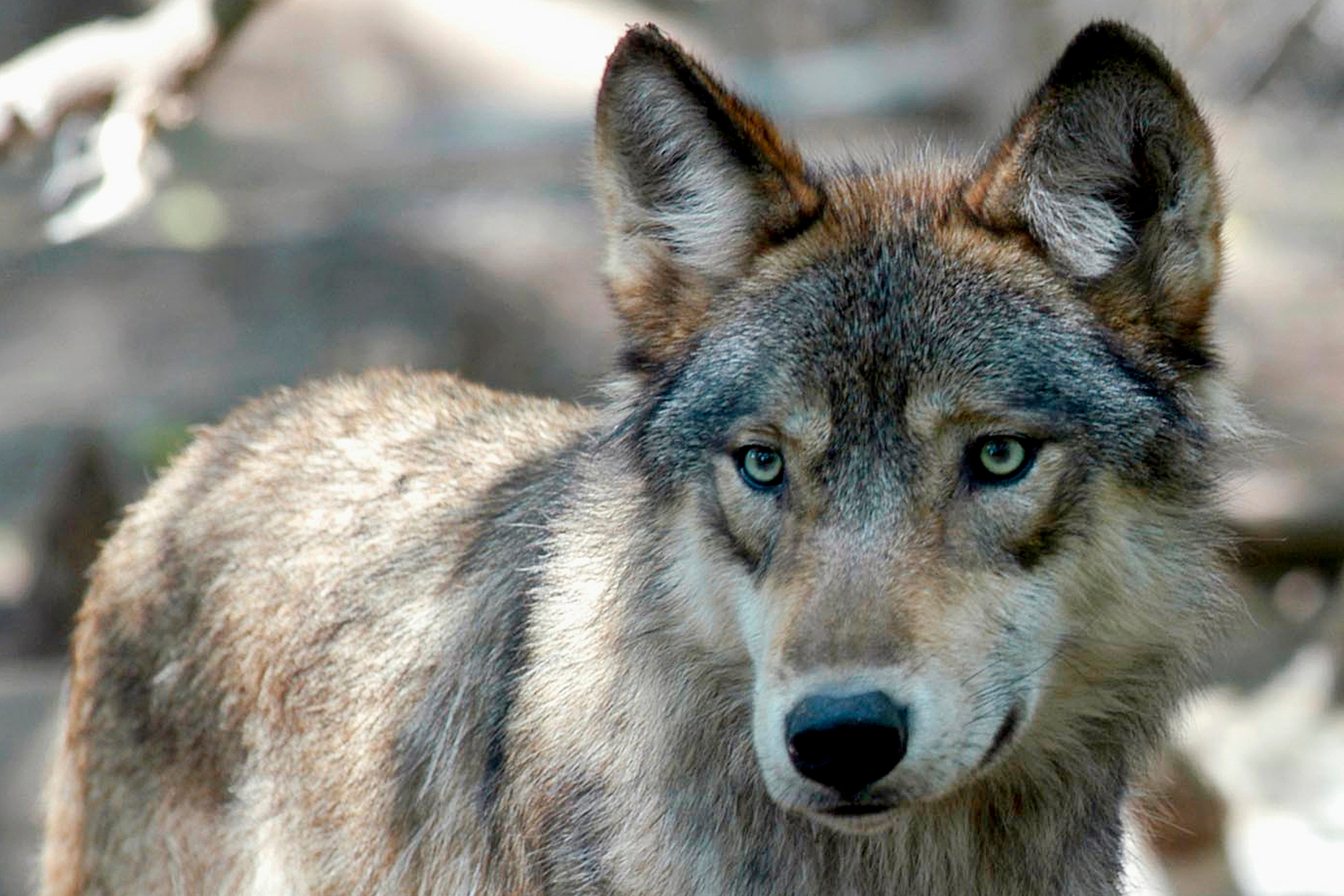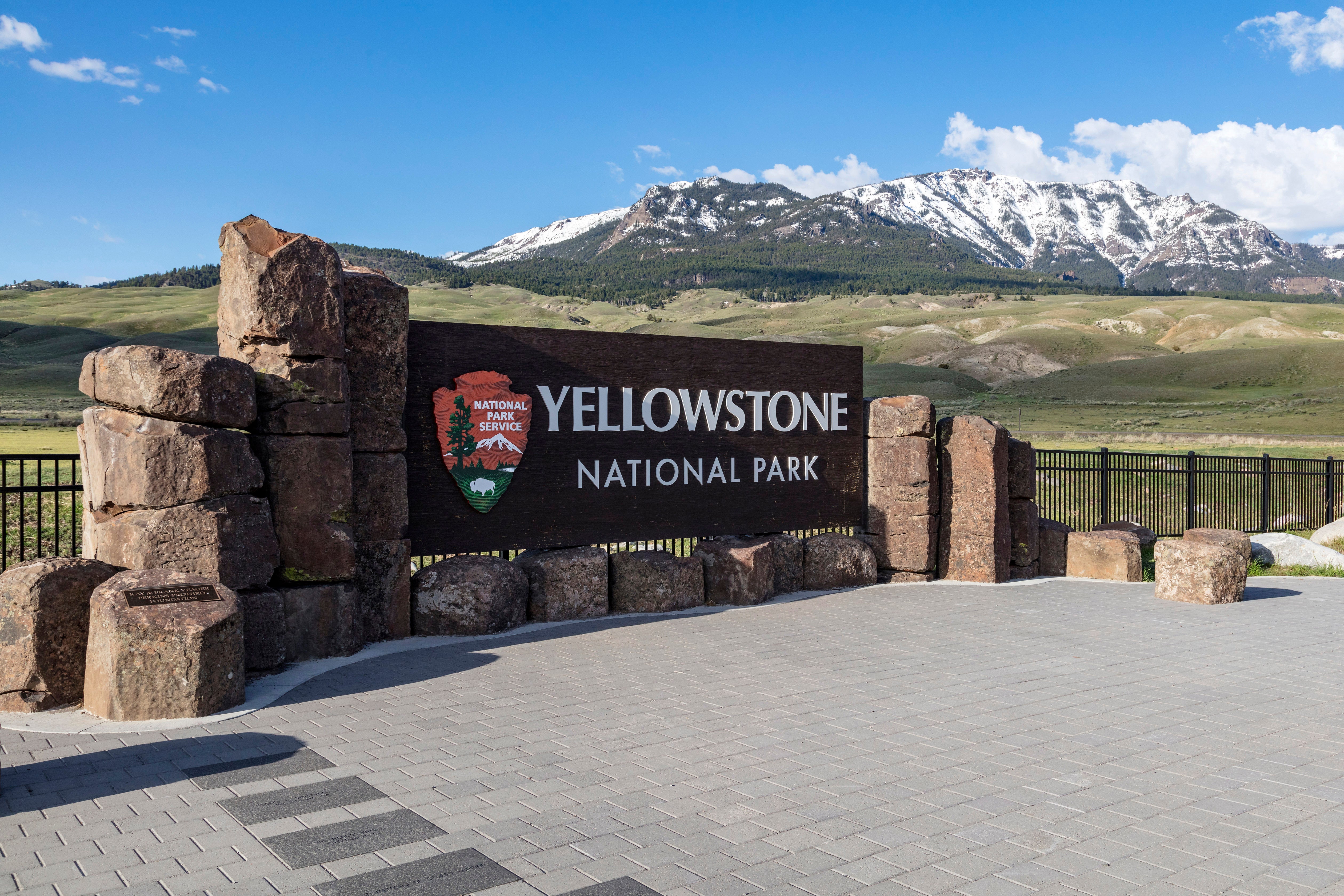Push for law change after man brought wolf he hit with snowmobile into a bar
Wyoming is considering a change to how it allows people to legally kill wolves by intentionally running them over

Your support helps us to tell the story
From reproductive rights to climate change to Big Tech, The Independent is on the ground when the story is developing. Whether it's investigating the financials of Elon Musk's pro-Trump PAC or producing our latest documentary, 'The A Word', which shines a light on the American women fighting for reproductive rights, we know how important it is to parse out the facts from the messaging.
At such a critical moment in US history, we need reporters on the ground. Your donation allows us to keep sending journalists to speak to both sides of the story.
The Independent is trusted by Americans across the entire political spectrum. And unlike many other quality news outlets, we choose not to lock Americans out of our reporting and analysis with paywalls. We believe quality journalism should be available to everyone, paid for by those who can afford it.
Your support makes all the difference.Outrage over how a man struck a wolf with a snowmobile, taped the injured animal's mouth shut and brought it into a bar has resulted in a proposal to tweak Wyoming's animal cruelty law to apply to people who legally kill wolves by intentionally running them over.
Under draft legislation headed to a legislative committee Monday, people could still intentionally run over wolves but only if the animal is killed quickly, either upon impact or soon after.
Wyoming's animal cruelty law is currently written to not apply at all to predators such as wolves. The proposed change would require a person who hits a wolf that survives to immediately use “all reasonable efforts” to kill it.
The bill doesn't specify how a surviving wolf is to be killed after it is intentionally struck.
The fate of the wolf struck last winter in western Wyoming has prompted a fresh look at state policies toward wolves. Wildlife advocates have pushed back against reluctance in the ranching state to change laws written after long negotiations to remove federal protection for the species.
Although further changes to the draft bill may be in the works, the proposal up for discussion Monday wouldn't change much, said Kristin Combs, executive director of Wyoming Wildlife Advocates.
“Everybody is against torturing animals. There is not a person I’ve come across so far that has said, ‘Yes, I want to continue to do that,’" Combs said Friday.

Caught on camera, the wolf seen lying on a bar floor in Sublette County led to calls to boycott Wyoming’s $4.8 billion-a-year tourism industry centered on Yellowstone and Grand Teton national parks, which comprise a prime wolf habitat not far from where the wolf was struck.
The organizing has had little effect, with Yellowstone on track for one of its busiest summer seasons on record.
Meanwhile, the man who hit the wolf — and killed it after showing it off — paid a $250 ticket for illegal possession of wildlife but did not face tougher charges.
Investigators in Sublette County said their investigation into the wolf incident has stalled because witnesses refuse to talk. County Attorney Clayton Melinkovich said by email Friday the case remained under investigation and he couldn't comment on its details.
The draft bill to be discussed Monday would allow somebody who intentionally hits a wolf with a vehicle to be charged with felony animal cruelty if it survives and they don't kill it right away.
How often wolves in Wyoming are intentionally run over — for a quick death or otherwise — is unknown. Such killings don't have to be reported and recorded cases like the Sublette County incident are rare.
The case brought fresh attention to Wyoming's policies for killing wolves, which are the least restrictive of any state where the animals roam. Wolves kill sheep, cattle and game animals, making them unpopular throughout the rural country of ranchers and hunters.
Across the region, state laws seek to keep the predators from proliferating out of the mountainous Yellowstone ecosystem and into other areas where ranchers run cattle and sheep.
In most of the U.S., wolves are federally protected as an endangered or threatened species, but not in Wyoming, Idaho and Montana, where they are hunted and trapped under state laws and regulations. In Wyoming, wolves may be killed without limit in 85% of the state outside the Yellowstone region.
Though few in Wyoming have spoken out in favor of what happened to the wolf, officials have been reluctant to change the law to discourage maltreatment. Jim Magagna with the Wyoming Stock Growers Association condemned what happened but called it an isolated incident unrelated to the state’s wolf management laws.